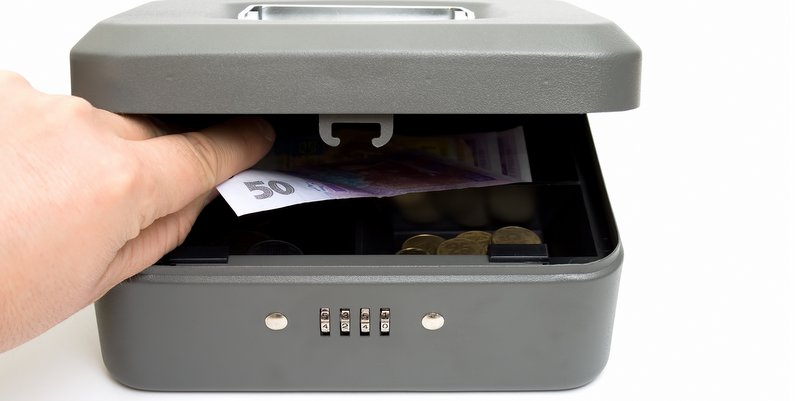
Unfiltered is a recurring CBB series featuring insights, ideas and opinions from craft beer professionals, crowd-sourced via Craft Beer Professionals, our Official Conversation Collaborator.
An anonymous poster with a 5 bbl brewpub in the CBP group asked for some advice on the best way to proceed after their head brewer put in their two weeks. To make matters worse, their two assistant brewers might be right behind them out the door:
“It might take some time to replace them but the show must go on in the meantime. Does anyone know of any contract brewers or private label manufacturers on the eastern half of Pennsylvania? Maybe New Jersey? We don’t really have ‘flagships’ or need massive quantities of any one specific beer. We’d just be looking for someone to make a few of the more popular varieties until we can regroup and appropriately staff our production team again.”
The commentary in the group quickly shifted away from contract brewing and to more probing questions about the situation in general. Perhaps it’s a moment to reassess things. But of course, the business must also continue. So what to do?
What should I do when my brewing staff leaves?

Brian Burton, owner, Hop and Sting Brewing: First, you may be in a pickle. I offer limited contract brewing at my facility and it is not a thing that you can just call and start brewing a small amount of beer. Depending on your state’s laws, you may have to go through a lengthy permitting process. It can take as long as 6 months to get a permit. You also need to check your license. Some states won’t allow a brewpub (some states differentiate a smaller brewpub with a larger brewery) to contract brew all together.
Second, most contract breweries won’t talk to you if you are that small. Most have at least 30bbl brewhouses, and those would be considered the smaller contract breweries. They make money by turning tanks. Your needs may not reach their capacity. Some may have pilot systems for small batches, but they will charge you a pretty penny because such small batches are not often worth their time. even if you get accepted, it’s take some time to get your beers right. Larger systems at these breweries are often way more efficient.
The biggest issue is most larger kettles have calandrias or similar set ups that cause them to boil hotter and take longer to cool down. This will extract more bitterness for your hops. Experienced contract brewers can figure out what recipe adjustments to make early, but it still may take a few brews to get things right (which you will have to pay for). Your best bet would be to reach out to a friend or colleague to brew for you temporarily while you search for a replacement brewer(s). Take that time to also learn how to operate your system yourself (or have someone in your ownership group do so). Don’t put yourself in a situation where you are beholden to someone else that is not an owner to brew your beer.
Zack Fogle, Abjuration Brewing: Yeah perhaps this is worded poorly, but if you suspect your entire brew staff is leaving in such a short amount of time you may have a larger problem, and finding someone to simply fill the role without examining the root cause may cause even greater trouble. But it could be a number of factors not necessarily a negative workspace.
Praxis Heckler, Andersonville Brewing: A strong union would probably fix this.
Jay Bradish, Red Clay Ciderworks: Maybe this is just how I would handle it, but if the other two people have not left yet maybe it’s a good opportunity to approach them and address whatever issues might be causing them to think of leaving. If you can be open to listening and making change if necessary you might be able to retain those two and work through it until you find a new brewer. At the very least you can address the underlying issues so that whoever you find as replacements doesn’t leave as well.
Rob Richenberg: Seconding all of the comments pointing out that you may have a bigger issue if you’re losing your whole production team in such a short period of time. Adding onto that, if you don’t know your other area breweries well enough to ask them before going to this group, that might be an additional sign for you to assess and reflect.
- Benny Fuller: They need to evaluate why they are not able to find another brewery in their community to help them with contracting. They need to examine pay and benefits, working conditions, how well front of house gets along with the brewery, cleanliness throughout the establishment, reputation in the community. Brewing tends to be a very collaborative industry, and I have talked to numerous Medal winning brewers in my area that were willing to tell me all of their tricks and provide me with whatever support they could. I’d recommend hiring and independent and neutral consultant to come in and evaluate what is going on in addition to talking to your staff about the issues that are causing them to leave. Hell, you may want the consultant to conduct those interviews.
Peter Lex: We bought a brewery that went out of business, hired one of the previous brewers, he eventually moved to a bigger brewery. During the two weeks we wrote SOPs and did brews together. Then did a few where I did all. I’ve been brewing and trading new brewers ever since. Get SOPs in place, brew, and hire. In Virginia and we contract brew for some breweries here, hit me up, we might be able to make it happen.
Christian Hood, Swan Brewing: Solid reason to have clearly written SOPs in place. If a vital position quits, dies, has a bad accident, etc.. another person can step into the role and follow the step by step manuals written.
Phil Phillips: It isn’t always the grass is greener elsewhere for that kind of exodus, but it usually is. Probably worth finding out why so it doesn’t just happen again. If it is pay, why not try to find efficiencies to make it a 2 person team instead of 3? Totally doable. I do 10hl Brewhouse with 2 people, brewing 3-4 days a week in a VERY inefficient brewery.
Richard Strom, Conducer Craft Solutions: We have no solid information here on how this business is being run or managed. So how can it be assumed it is the management or the owners? Fact of the matter is there are brewers out there that think they are god’s gift to the world and aren’t being treated right and yes they do throw fits and walk out. I’m guilty of it. Sometimes head brewers end up in the hospital for weeks on end. Owners need help, we fill-in. We fill all kinds of vacant brewer scenarios, there is actually a demand for it, and that is just one of the many services we offer.





Leave a Reply
You must be logged in to post a comment.